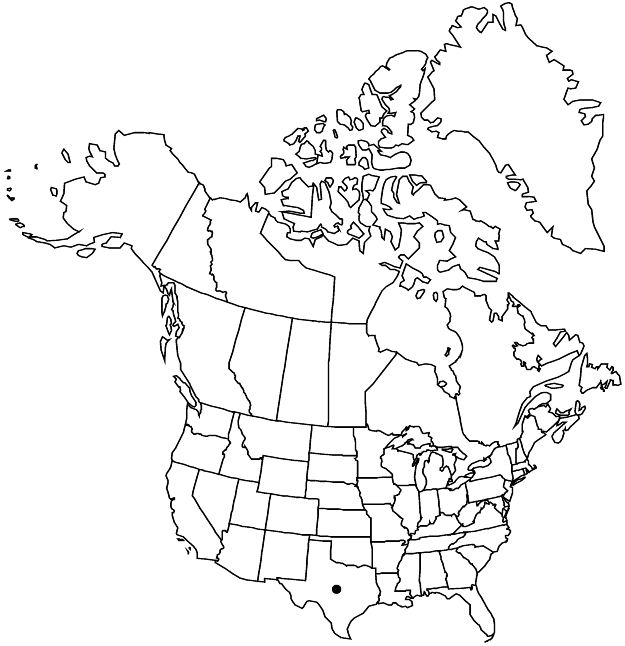Difference between revisions of "Ayenia limitaris"
Opera Lilloana 4: 61, fig. 17. 1960.
FNA>Volume Importer |
FNA>Volume Importer |
Revision as of 22:44, 16 December 2019
Shrubs, erect, to 1.5 m. Stems hairy to glabrate, hairs minutely stellate, ± appressed. Leaves: petiole to 2.5(–4) cm; blade ovate to ovate-lanceolate, unlobed, (3–)5–12.5 × (1.7–)3.2–7.5 cm, noticeably reduced in size distally on stem, base rounded to cordate, margins irregularly dentate to dentate-crenate, apex acute to acuminate, 7-veined from base, surfaces: abaxial tomentulose, adaxial sparingly stellate-pubescent. Cymes axillary, not borne on short shoots (brachyblasts), 2 or 3(or 4)-flowered; peduncle to 10 mm. Pedicels 3–7 mm. Flowers: sepals caducous, not persistent in fruit, reflexed at anthesis, ovate-lanceolate, 3 mm, stellate-pubescent abaxially; petal claws 2.5 mm, lamina reniform, 1 × 1.5 mm, base deeply lobed, lobes ovate-rounded, margins ± entire, apex entire, surfaces glabrous, abaxial appendage absent; androgynophore 0.2–0.3 mm; stamen filaments absent or nearly so; stigmas slightly exserted. Capsules oblate, 6–7 × 8–10 mm, densely short stellate-pubescent, prickles 1–1.5 mm. Seeds 3–5 mm, tuberculate.
Phenology: Flowering summer; fruiting summer–fall.
Habitat: Subtropical thorn woodlands or tall shrublands, calcareous or fine sandy loam to heavy clay alluvial soil
Elevation: 0–30 m
Distribution

Tex., Mexico (Coahuila, Tamaulipas).
Discussion
Of conservation concern.
Ayenia limitaris was designated an endangered species by the U.S. Fish and Wildlife Service in 1994. In the flora area, the species is known only from near the mouth of the Rio Grande.
Ayenia limitaris is in the Center for Plant Conservation’s National Collection of Endangered Plants.
Selected References
None.